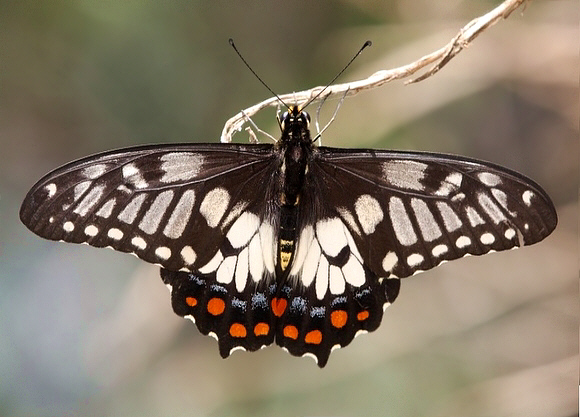
Introduction
Back in the 18th century when Linnaeus created the System Naturae, the word Papilio was used as the genus name for every known species of butterfly in the world. Since then much has been learnt about the relationships between different species. Consequently most have been reassigned to new genera, and only about 215 of the 17600 currently known species are retained in Papilio. There are 6 Papilio species in Australia, plus another 11 species from other genera of Papilioninae.
Papilio anactus is endemic to Australia and is distributed from Cairns to Victoria and South Australia.
Habitats
This species naturally inhabits forest glades and clearings but has also become a pest of cultivated Citrus in orchards. It occurs at elevations between sea level and about 1500m.
Lifecycle
The pale yellow spherical egg is laid singly on Citrus, Eremocitrus and Microcitrus ( Rutaceae ). The fully grown caterpillar is bluish-black peppered with tiny white dots. It has large yellow heart-shaped spots along the back and sides. The pupa is pale brown and is attached vertically to a stem.
Adult behaviour
Both sexes have a slow lazy flight and patrol back and forth on a regular route along forest tracks.
